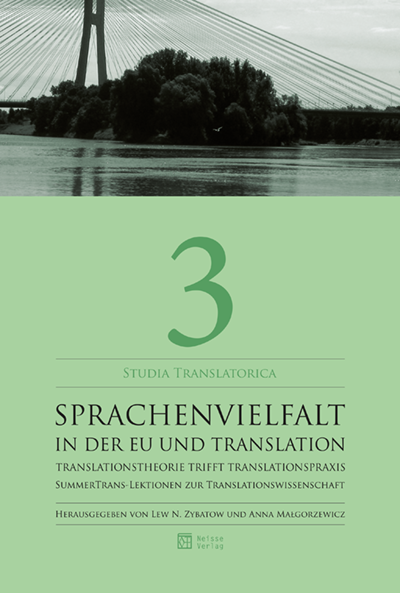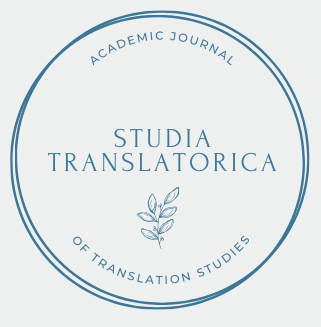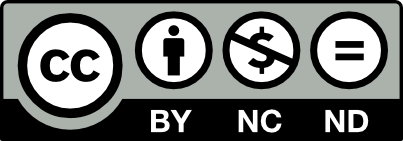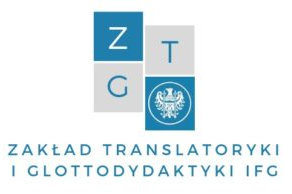
Studia Translatorica
Issue 3 (2012): Sprachenvielfalt in der EU und Translation. Translationstheorie trifft Translationspraxis. SummerTrans-Lektionen zur Translationswissenschaft
Edited by: Lew N. Zybatow and Anna Małgorzewicz
Literarische Übersetzung: Geschichte – Theorie – Praxis
DOI: --- (published online: 2020-10-18)
Keywords:
The present summary of my lectures on literary translation given at the University of Wrocław in summer 2011 begins with some introductory remarks concerning methodological problems: Can literary translation really be taught and if so, can it be taught to a Polish audience by a lecturer practically ignorant of the Polish language and literature? How may this deficit be compensated? The theoretical part deals with three complex questions: 1. The relation between two apparently antagonistic approaches to translation studies, the retrospective-descriptive and the prospective-prescriptive approach. It is shown that these two approaches are complementary and by no means antagonistic. 2. The distinction between three levels (metaphorically “floors”) of research issues within the global field of translation studies: a) the technique of translation (translation procedures), strictly related to linguistic problems; b) the strategy of translation, i.e. decisions made by the translator that do not depend on linguistic facts but on external factors. Such decisions may relate to specific characteristics of the readership to which the translation is destined or the purposes pursued by the translator, and finally c) the “Übersetzungsbetrieb”, i.e. translation as a public institution, the whole “machinery” concerned with and all the factors connected with it. 3. The correlation between the above mentioned “floors” of translation studies and the three most important theoretical approaches to literature: a) the “biographic-positivist” approach that emphasizes the connection between life and work of an author; b) the “ideological” approach, based on the assumption that literature may reflect the main ideas, values and problems of a given society at a certain time and finally c) the strictly “textual” approach, that neglects all the external factors of the literary work, focusing only on the formal “make-up” of the text (“werkimmanent”).
Empirische Übersetzungsprozessforschung. Methoden und Vernetzungen
DOI: --- (published online: 2020-10-18)
Keywords:
Empirical translation process research has developed into one of the most active fields within translation studies. A deeper understanding of the translators’ cognitive processes, their problems, strategies and decisions, and the development of their translation competence is regarded as important, especially for translator training. Translation process research began about a quarter of a century ago with studies where introspection methods, primarily think-aloud-protocols, were used. Today many methods, tools and several kinds of software are at our disposal. They can be applied and combined in a variety of different ways and thus be adapted exactly to the actual research question under investigation. In this article some methods, method-combinations and triangulations are presented. There will be given a short overview over trends in empirical translation process research.
Begriffsbildung als ‚translationsdidaktische‘ Herausforderung
DOI: --- (published online: 2020-10-18)
Keywords:
The article discusses issues concerning terminological adequacy in the context of teaching and researching translation. Based on several analyses some of the general questions of terminology work can be pointed out that are connected to the problem of the so called terminological “gap” as different scientists classify differently. Concept formation as a teaching strategy presented in this article should demonstrate how these terminological gaps can be dealt with in the work of an interpreter or a translator who is trying to develop suitable translation strategies.
Skizze einer deutschen Übersetzungsgeschichte
DOI: --- (published online: 2020-10-18)
Keywords:
The present article is a short overview of the history of translation into the German language. It aims at being more than a mere chronicle of events and, thus, attempts to integrate aspects of the history of the German language, culture and literature. The focus does not lie on names of translators and titles of works (the details of which can easily be found in the sources indicated in the bibliography), but on the most influential cultural contacts of the German speaking area and on the interaction between the prevalent translation theories and the actual translation practice of the different periods. The text also contains short reflections on the social status of the translators.
Simultandolmetschen – Kompetenzerwerb, Strategien und Qualität
DOI: --- (published online: 2020-10-18)
Keywords:
Many definitions have been given and many criteria have been used to defi ne quality in simultaneous interpreting, that elusive something which everyone recognizes but no one can successfully define. Members of AIIC have referred to it as the ‘monster of Loch Ness’, which nobody has ever managed to catch. The reason why quality is so difficult to define depends on the complex nature of simultaneous interpreting and the numerous variables under which it may take place. A simultaneous interpreting may be judged as highly qualitative in a certain setting, but less so in another. In this paper are described the elements that come into play in the definition of quality in simultaneous interpreting, from objective elements of a communicative event to the subjective elements of knowledge organization in interpreters with the aim of illustrating their strict interplay.
Umweltkommunikation in Europa: Schlüsselbegriffe im multilingualen Kontext (‚Nachhaltigkeit‘, ‚Sicherheit‘, ‚Resilienz‘)
DOI: --- (published online: 2020-10-18)
Keywords:
Key concepts – such as sustainability, security, resilience – play an important role in multilingual communication in Europe. They represent public topics which are discussed in order to design the joint future of the different cultures. From a linguistic point of view the differences are reflected in those concepts that are composed in distinct ways and applied in different contexts of life and communication. In contrast to well-known approaches of terminology where systems of term classification and part-whole-relationships provide the criteria for the collection, comparison and organization of lexical material, the present paper presents an access to the analysis of text-based meanings of concepts in terms of knowledge schemata and their function of coherence building in texts. The approach applied is demonstrated by three text analyses as examples.
Translationstechnologie im Curriculum der Übersetzerausbildung
DOI: --- (published online: 2020-10-18)
Keywords:
With the technological turn in translation studies translation technology is becoming more important. This paper analyzes the concept of translation technology and its status within Translation Studies and proposes a model of necessary components for a specific curriculum within translators training courses. For teaching, the author stresses the importance of the use of free software on the basis of its evident advantages over proprietary software. An exemplary model of a translation technology course is proposed with eight core modules that summarize its content.
Die Staatsprüfung zum vereidigten Übersetzer und Dolmetscher in Polen / The state examination to become a sworn translator and interpreter in Poland
DOI: --- (published online: 2020-10-18)
Keywords:
The article presents the status of sworn translators and interpreters in Poland and the examination requirements set by the State Examination Board for candidates for sworn translators and interpreters in the light of applicable law. The author describes the written and oral examination, the types of texts translated and interpreted by examinees as well as the statistical data regarding the examination. He analyses mistakes made by candidates in consecutive interpreting, sight translation and – briefly – in certified translations. In his analysis, he classifies the mistakes, explains the reasons behind them, makes comments on each group of them and draws final conclusions.


